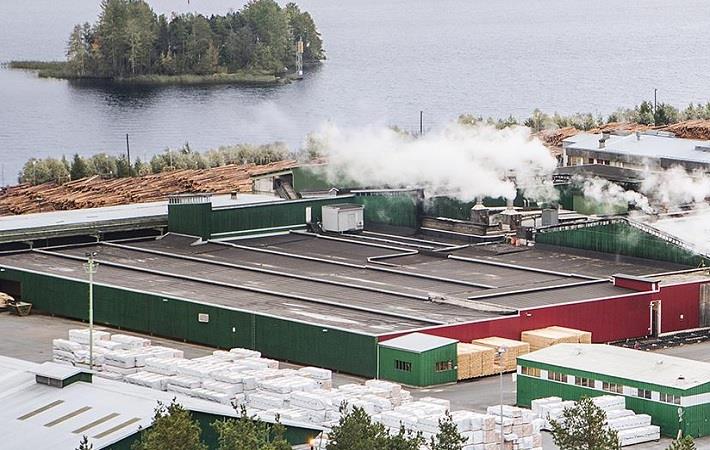Metsa Fibre has agreed on the main equipment purchases for the new sawmill to be built in Rauma and the planned bio-product mill in Kemi. The total value of the agreements is approximately €500 million and their degree of Finnish content 70 per cent. Metsa is a leader in sustainable bio-economy utilising renewable wood from sustainably managed forests.
In the spring of 2019, Metsä started the pre-engineering for investments totalling roughly €2 billion, including the Rauma sawmill, Kemi bio-product mill and the first phase of the modernisation of the Husum pulp mill in Sweden. With these investments, Metsä meets across the entire forest industry value chain the needs of forest owners and its customers even better than before.Metsa Fibre has agreed on the main equipment purchases for the new sawmill to be built in Rauma and the planned bio-product mill in Kemi. The total value of the agreements is approximately €500 million and their degree of Finnish content 70 per cent. Metsa is a leader in sustainable bio-economy utilising renewable wood from sustainably managed forests.#
The delivery of Rauma’s sawline, which will run at a speed of more than 200 metres per minute, has been agreed on with Veisto Oy. The log sorting as well as the sawmill’s feed and bark processing equipment will be delivered by Nordautomation Oy. The dry sorting and packaging equipment will be delivered by C. Gunnarssons Verkstads AB, and the two green sorting lines as well as the sticking and stacking line by Renholmen AB. The speed on all processing and sorting lines is more than 200 pieces per minute. Heinolan Sahakoneet Oy is supplying the equipment for the drying department. All load transfers in the drying area will be fully automated. The total value of these equipment deliveries is approximately €100 million and the degree of Finnish content 70 per cent, the company said in a press release.
An agreement on the engineering of the sawmill’s construction phase has been made with AFRY and on the actual construction with A-Insinöörit. An agreement on the earthmoving works has been made with LM-Suomiset Oy. The sawmill’s excavation work is entering its final stages and construction will get underway in May.
Production at the world’s most modern sawmill in Rauma, which will cost around €200 million, is meant to start up during the third quarter of 2022. The new unit’s annual production is some 750,000 cubic metres of pine sawn timber, and it will be a global forerunner in terms of its technology and efficiency. The new sawmill will employ around 100 people directly in Finland and around 500 people across its direct value chain. The annual use of logs sourced in Finland is estimated to be around 1.5 million cubic metres. Sawn timber produced by the Rauma sawmill will be sold mainly to Europe and Asia.
A preliminary agreement on the delivery of the key technology and automation for all of the main production lines of the Kemi bio-product mill has been signed with Valmet, conditional to the final investment decision. The total value of the deliveries comes to €350-400 million and the employment impact of the main equipment production is approximately 800 person-years, of which more than 500 will be carried out in Finland.
The readiness to make the final investment decision on the roughly €1.5 billion Kemi bio-product mill is expected to be reached in the autumn of 2020, as the environmental permit process is completed. The Kemi bio-product mill would annually produce some 1.5 million tonnes of softwood and hardwood pulp as well as numerous other bio-products. It would employ around 250 people directly in Finland and a total of approximately 2,500 people across its direct value chain. The mill’s annual use of pulpwood, purchased mainly from Finland, would amount to roughly 7.6 million cubic metres.
During the construction phase, the Kemi bio-product mill’s employment impact is estimated to be nearly 10,000 person-years, of which more than half would be carried out in Kemi. The number of workers working in the mill area over the entire construction phase is estimated to rise to around 15,000. The starting point for the planning of the new bio-product mill has been a high degree of environmental, energy, and materials efficiency. The mill would not use any fossil fuels at all, and its electricity self-sufficiency would be 250 per cent. This would strengthen the already significant position of Metsä as an electricity producer based on Finnish renewable fuels.
Fibre2Fashion News Desk (GK)
